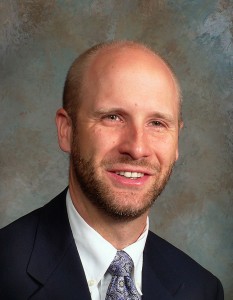 Jack Mulder is Professor of Philosophy at Hope College. We invited him to answer the question “What does philosophy of religion offer to the modern university?” as part of our “Philosophers of Religion on Philosophy of Religion” series.
Jack Mulder is Professor of Philosophy at Hope College. We invited him to answer the question “What does philosophy of religion offer to the modern university?” as part of our “Philosophers of Religion on Philosophy of Religion” series.
What does philosophy of religion offer to the modern university?
Nothing.
Or at least, that is what I fear that philosophy of religion offers to the modern university when it is finished cruising down its current course. Archbishop Fulton Sheen once wrote that “A bigoted man is one who refuses to accept a reason for anything; a broad-minded man is one who will accept anything for a reason.” Now philosophers of religion, as with all philosophers and all rational people, should oppose bigotry. The reason for that, I think, is that bigoted people refuse to accept the terms of rational discourse. They persist in their views in the face of overwhelming reasons to deny them. In particular, bigoted people persist in the face of reasons so overwhelming that the only way for them to continue holding their views is to opt out of the project of rational discourse entirely. Consider racism. Modern biological anthropology has now provided evidence so compelling for the misapplication of the term “race” to anything substantially biological (in that there are no biological markers that all members of one race have and that all people who are not members of that race lack) that one would have to be a bigot to hold to any intrinsic reasons for the superiority of one race over another. That doesn’t mean that the term “race” has not changed over the years (as has the term “atom,” to take an example from Paul C. Taylor) into something strategically important to hold on to for political and cultural purposes such as fighting the injustice of past and continuing racism, but it does mean that those who hold racist views have no rational leg on which to stand.
“Broad-minded” people, to use Sheen’s language, might seem to be quite the opposite of bigoted people, but it turns out that the two groups share some important characteristics. On the one hand, broad-minded people (in this very particular usage I am taking from Sheen), on the face of it, accept all comers. On the other hand, it becomes clear soon enough that it is not the project of rational discourse to which they are welcomed. Philosophy of religion, and academic discourse more generally, should welcome all opinions that are willing to take up the burden of offering reasons (in a fairly broad sense), accessible in principle to anyone. That does not mean that those who have a religious experience incapable of being fully described in rational terms, such as St. Teresa of Avila, are beyond the pale. It merely means that such people must be willing to seek out reasons for why, epistemically, religious experiences could be veridical, should they wish to engage in academic discussion. But this also means that conversations at a university should be academic in nature, and that if you are unwilling to articulate your views in a rational way, then you have opted out of the project of rational discourse. A corollary is also true: if someone represents her views as rational, her views should not be represented as merely sentimental or emotive. Certain forms of dialogue have a way of construing the enterprise as merely one of encounter. But philosophical discussion must keep all of those charitable dispositions in place and do still more. Personally, I believe that there is better evidence for God’s existence than for God’s nonexistence. I believe the Christian view of the afterlife can be defended against critics. I even believe that there are good, philosophically grounded, reasons for why people who are already Christians should believe the Catholic dogma of Mary’s Immaculate Conception. While I sometimes articulate these views as part of my Catholic faith, I am willing to accept the burden of offering a rational picture for why I believe these things. (Philosophy of religion is not always done from a religious perspective, but it can be done that way.) Certainly, I could be wrong, but these are not merely feelings. They entail disagreements with others who also accept the burden of rational discourse. These should be charitable disagreements, to be sure, but our reasons must be scrutinized even if that forces us to change.
My sense is that the “modern university” has a tendency to do one of two things in regard to religion as it cruises down its current treacherous path. In the one case, it ignores the convictions of religious people who are willing to enter the project of rational discourse, perhaps because of its own hegemonic sense of what constitutes reason. Or sometimes it might welcome certain religious or moral views only insofar as they will admit to being treated as elements of a “broad-minded” sampler of views that are welcomed less as serious rational partners in the discourse of the university and more as superstitious and/or cultural holdouts for people, especially students, who haven’t yet fully embraced “reason” in its currently fashionable garb.
Philosophy of religion is an area of study and research that can, and should, invite all participants to the project of rational discourse as it concerns the religious life, disinviting only those who are unwilling to submit their religious views to rational scrutiny (of a broad sort). For the unexamined religious, or secular, life is not worth living.
